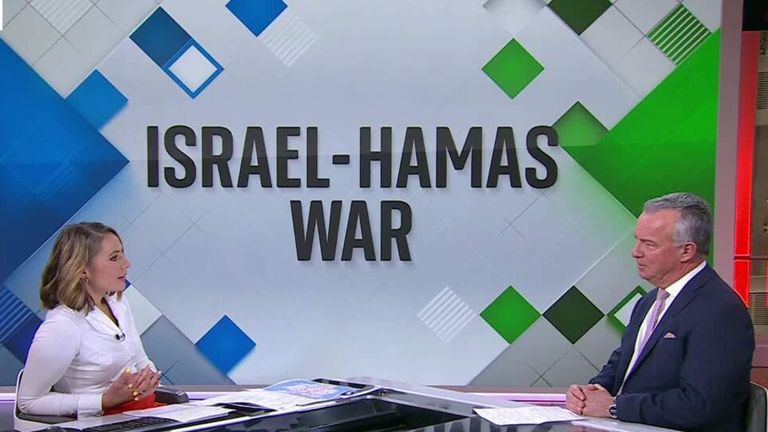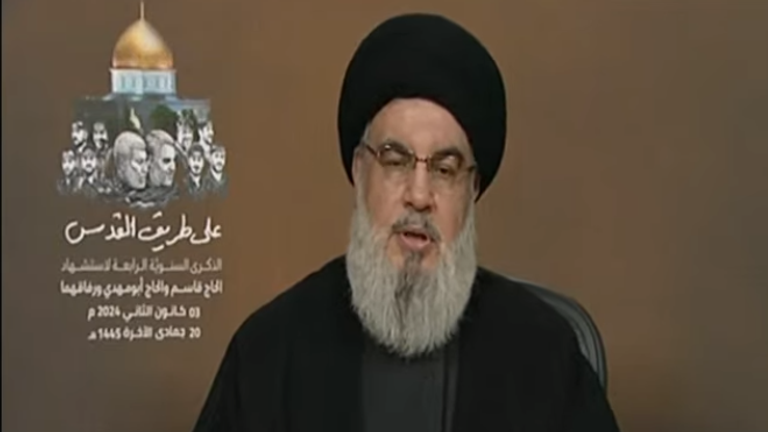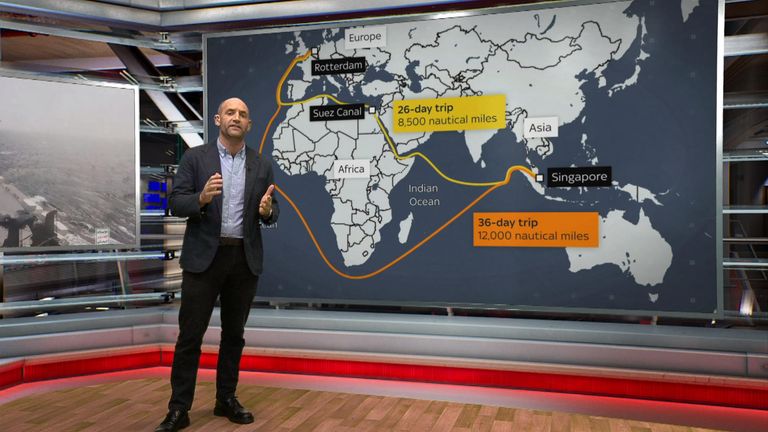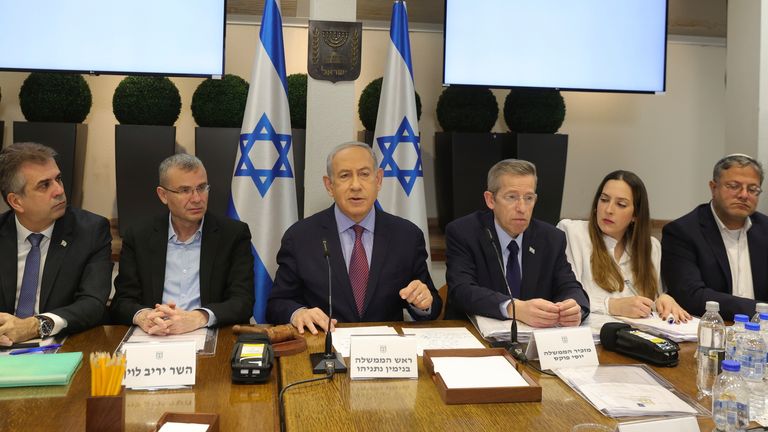
Antony Blinken, the US secretary of state, arrived in Turkey on Friday for his fourth visit to the region since Hamas launched its attacks on Israel last year.
This flurry of visits reflects the growing international concern that the war in Gaza risks escalating into a wider regional conflict.
The US vetoed the most recent UN Security Council resolutions to bring the conflict to an end to provide time for Israel to achieve its political objectives.
The international community overwhelmingly believes that a two-state solution is the only way to bring peace to the region, but it has become increasingly apparent that such an end-state is not supported by Israel.
Although Israel’s defence minister Yoav Gallant has started to elaborate on what the “day after” the war ends might look like, it is very vague, lacks detail, and appears to be an Israeli solution rather than an international, including Palestinian, collaboration.
And, although the US had hoped that the conflict might be drawing to an end by Christmas last year, Israel has reiterated the war will only end once Hamas has been destroyed.
The Israel Defence Forces (IDF) believes it has killed or captured 9,000 Hamas fighters out of a pre-war total thought to be around 30,000.
This leaves well over two-thirds of Hamas fighters still at large, which probably explains why Israel believes the conflict could go on for at least another year.
Israel says there are still around 130 Israeli hostages being held captive in Gaza, who were seized in the 7 October raids by Hamas, in which around 1,200 people were killed and 240 taken hostage.
Since then, more than 22,400 people have been killed by the Israeli response, according to Gaza’s Hamas-run health ministry.
Risks of escalation in Lebanon, Yemen and the Red Sea
Hamas is no match for the IDF militarily, but if the conflict did escalate into a regional war, pressure would increase on the US to bring their influence to bear to bring the war to an end.
Iran funds Hamas, Lebanon’s Hezbollah and the Houthi rebels in Yemen, and it is this influence that is being exploited to ratchet up pressure on the US.
The Israeli border with Lebanon has seen regular exchanges of fire between the IDF and Hezbollah.
However, following the claimed assassination of Hamas deputy military leader Saleh al Arouri on 2 January in southern Beirut, the Hezbollah leader Hassan Nasrallah vowed to avenge the attack.
Earlier on Saturday, Hezbollah fired 62 rockets at an Israeli observation point, prompting an Israeli fighter jet to respond with an attack on what the IDF claims was a Hezbollah command post.
In the Red Sea, Iranian-backed Houthis have been disrupting global shipping.
On Friday, huge crowds gathered in the Yemen capital Sana’a to mark the deaths of 10 Houthi fighters who were attacking a Maersk merchant ship when a US military helicopter intervened.
US forces stationed in the Middle East to prevent the resurgence of Islamic State have also come under more frequent attack – the US has 900 based in Syria and 2,500 in Iraq.
The conflict in Gaza has also distracted world attention, and support, for Ukraine in its war with Russia.
All this increases pressure on the US to find a way to bring the Israel-Hamas war to an end to stop the steady escalation in the region.
Blinken faces struggle to find a solution for all sides
The longer the war in Gaza continues, the greater the risk of a wider conflict.
But, it is not clear what the desired end-state is for Israel.
Rumours abound that Prime Minister Benjamin Netanyahu’s cabinet cannot agree on a future governance model for the region, and if not a two-state solution, then what is the solution?
Read more:
How tentacles of war could entangle Middle East in more conflict
Israel on high alert for attacks from Lebanon
Hamas blames Israel for ‘cowardly assassination’
An Israeli-imposed model would be unlikely to secure international support, and thus lack credibility.
Nobody expects negotiations to be simple, but any agreement has to be mindful of Palestinian concerns, involve the international community, enable peaceful co-existence (eventually) for both Israelis and Palestinians, and create prosperity for Palestinians to replace decades of despair with hope.
This will not be simple to resolve, but failure means perpetuating the endless cycle of violence and devastation that has defined the region over the past eight decades.
A huge weight of responsibility lies on the shoulders of US Secretary of State Blinken.




